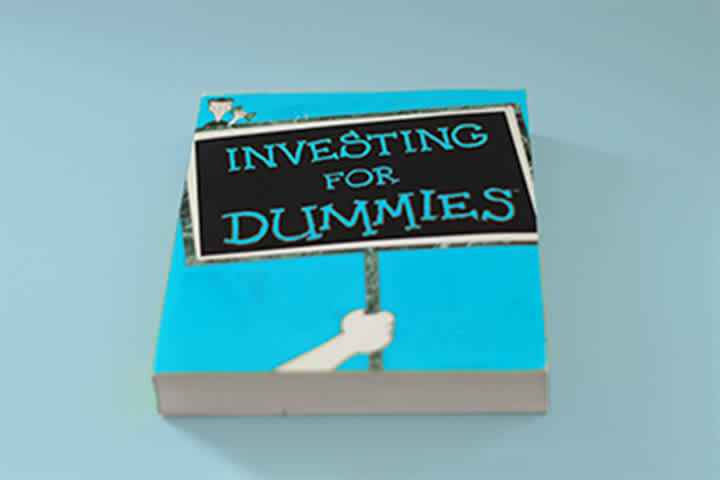Capital gains tax: who can escape and who will pay?
Keytrade Bank
keytradebank.be
February 19, 2025
3 minutes to read
Investors will soon be required to pay up to 10% over their profits. Discover the impact and how to prepare.
18 February 2025 update
1. What is capital gains tax?
Capital gains tax is a new 10% tax on profits made by private individuals on the sale of investments. The government wants to avoid this affecting small investors. According to current plans, they will therefore be instating an annual exemption of EUR 10,000. Providing your annual profit does not exceed EUR 10,000, you will not be required to pay this tax. The exempt amount should also be indexed each year.
For shareholders with a high stake in a company (at least 20%), the following rates are currently predicted:
- Capital gains up to EUR 1,000,000: exempt
- Between EUR 1,000,000 and 2,500,000: 1.25%
- Between EUR 2,500,000 and 5,000,000: 2.5%
- Between EUR 5,000,000 and 10,000,000: 5%
- Above EUR 10,000,000: 10%
Speculative trading and day trading non-professionally are already subject to a 33% capital gains tax. The tax should only be applicable to private individuals and entrepreneurs investing in their own name, not to companies. It is still unclear what the consequences will be for e.g. non-Belgian taxpayers residing in this country and non-resident Belgian taxpayers.
2. What if you only sell your shares after 10 years?
The possibility of an exemption for investments held for over 10 years remains uncertain. As this exception is not included in the coalition agreement, it may not be made at all. Without an exemption, investors wishing to avoid taxation will be quicker to sell (and reinvest) once the EUR 10,000 threshold nears. Such an approach would allow for up to EUR 10,000 of tax-free profit annually. Long-term and passive investors have investment horizons of 5 years, 10, 20 or more, and do not wish to sell prematurely. Under the current plan, this does mean that if their profits exceed EUR 10,000 on the day they finally decide to sell, they will be taxed.
3. When will this tax go into effect?
The law is likely to be passed in 2025, with the aim of generating revenue from 2026. All the various details need to be turned into legislative texts and approved first, leaving room for discussion and possible adjustments. Various practical issues still await resolution. For example, it is not yet clear whether banks will withhold the capital gains tax for you or not, in which case investors trading with multiple brokers and bank accounts might need to declare the tax themselves.
4. Which assets are subject to capital gains tax?
The tax is expected to apply to:
- Shares
- Bonds
- Investment funds and trackers
- Investment insurance (branch 23)
- Cryptocurrencies
It remains unclear whether the tax will also apply to savings insurance (branch 21), physical gold, options and more speculative instruments such as warrants and turbo certificates, unlisted shares (private equity), etc.
5. Are unrealised capital gains taxable?
No, only capital gains realised on disposal will be subject to taxation. This means you won’t have to pay as long as you hold onto your investments. That’s the current plan, anyway.
6. Are previous capital gains taxable?
No, the tax should only apply to capital gains realised after the law’s introduction.
7. Can losses be deducted?
Yes, but only within the same calendar year. It won’t be possible to carry over losses to a following year. While losses within a certain year can be used to offset profits, these cannot be carried forward to later tax years.
8. Can costs be deducted?
There is no clarity on this so far. Transaction costs may be deductible, but that has yet to be confirmed.
9. What about foreign currency investments?
If, for example, you invest in US shares in USD and realise a capital gain that exceeds the exempted limit, but ultimately ends up below it upon conversion to EUR due to an unfavourable exchange rate, it is unclear how this should be calculated. The question is whether the ‘official’ capital gain in EUR should be based on the rate at the time of purchase and sale, or on the basis of your actual received cash flow after conversion.
Furthermore, which exchange rate applies in case of multiple purchases made at different times? Will the calculations use a weighted average or look at the specific rates for each transaction? What about a dollar position you have had for some time, which has meanwhile changed banks or brokers?
As with the other issues, the final legislative texts will reflect the legislator’s decisions on these points.
10. Could the tax rate increase in future?
Although there was no general Belgian capital gains tax before this, investors fear the rate may go up further in future. This is what happened to the withholding tax, which increased from 15% to 30% over the years. Whether the capital gains tax will go up in future is unknown, but history suggests such a course cannot be ruled out.


